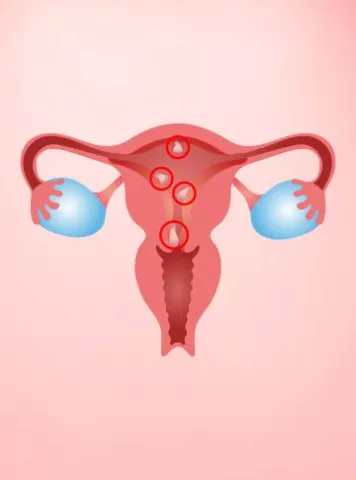As we all know infertility rate is constantly rising in our society day by day and our lifestyle changes are responsible for that at a certain level.
In our grandparents’ era, people were getting married at early age and having family planning in the initial years, so it was routine for a female to have a child before her 30’s, but since last 2-3 decades, scenario is changing gradually. People are becoming more focused on completing education and exploring career opportunities in competitive environment. So getting married into their 30’s is what we observe now a days. Adjusting in job, settle a life is priority, so family planning is getting delayed further.
Actually it is most important for a female to get pregnant at her golden age (21-30). The logic behind that is that female is born with limited number of eggs in her ovaries. She is having these eggs recruited in each menstrual cycle since her first menstrual period (Menarche). So, as the age advances, her total number of eggs (Ovarian Reserve) decreases. After 30-35 years of age, quality and quantity of eggs decline even further and it becomes more difficult to conceive. With age hypertension, diabetes, weight gain and other co-morbid conditions may come in picture, which causing hormonal changes in reproductive system leading to develop adenomyosis and uterine fibroid like condition which also decreases fertility, so treatment outcomes declines as well.
A couple needs to maintain the biological cycle for balance of hormones in body, failing which may result in hormonal dysregulations, ovarian cysts, polycystic ovaries like problems which are common now a days in society. Nutritional deficiency in view of junk food trend and poor hygiene have aggravated pelvic inflammatory disease (PID) symptoms.
For a couple to conceive, both male and female partners are equally responsible. But in around 30-40% cases males are solely the cause of infertility. Male factor infertility is constantly rising due to tobacco smoking, stress, alcohol, work place with higher temperature, genetic conditions and other medical illnesses.
When ruling out male factor infertility, semen analysis is performed routinely. In semen analysis- total sperm count, sperm motility and sperm morphology are important considerations. These parameters should meet ‘WHO criteria’ of a normal semen sample. If not, a couple should seek for assisted mode of reproductive techniques as there are limited sources available to improve sperm parameters beyond certain level.
So, keeping all these things in mind, a child seeking couple, should be investigated first with basic reports and exact cause of infertility should be ruled out first and treatment mode should be decide accordingly.
Usually when a couple starts treatment, is prescribed with medicines for ovulation induction. Serial ultrasound monitoring is done to decide ovulation timing so that a couple can try naturally
But in certain unexplained infertility cases/ male factor infertility cases, even after ovulation fertilization process gets hampered due to unavailability of sperm. This problem can be tackled up to certain level help of IUI (Intrauterine Insemination) process, in which washed semen gets injected into uterine cavity after triggering ovulation. So even with low sperm count availability of sperm can be facilitated.
If conceiving is not becoming possible with routine treatment options or reports are suggestive of impaired fertility, advanced approach should be availed for a couple. IVF (In Vitro Fertilization) has become pioneer in fertility treatment field. Lab process of fertilization cut short treatment timing and dependency on female’s reproductive system. Recent advances like ICSI (Intracytoplasmic Sperm Injection) has helped improving embryo quality even with vey low or defective sperm count and thereby improving success rate.
So, in current scenario, a desperate couple should approach fertility clinic for better management of fertility problems with best possible outcome amid changing lifestyle pattern.
Articles
2023


World AIDS Vaccine Day 2023: Can HIV & AIDS affect fertility or your infant’s health?
World AIDS Vaccine Day is observed every year on the 18th of May to create awa...
2023


Male Infertility Infertility Tips
Hyperspermia: Causes, Symptoms, Diagnosis & Treatment
What is Hyperspermia? Hyperspermia is a condition where an individual produ...


Guide to infertility treatments Infertility Tips
पीआईडी: पेल्विक इनफ्लैमेटरी डिजीज और निःसंतानता
पीआईडी - पेल्विक इनफ्लैमेटरी �...
2022


Infertility Tips Uterine Fibroids
Endometrial Polyps (Uterine Polyps)
What are Endometrial Polyps (Uterine Polyps)? Endometrial polyps, often ref...
2022


Cesarean Section Vs Natural Birth
Surrogacy centers in Delhi and Infertility centers in Pune state that there ar...
2022


ನಿಮಗೆ ಹುಟ್ಟಲಿರುವ ಮಗುವನ್ನು ಅರ್ಥಮಾಡಿಕೊಳ್ಳುವುದು: ಗರ್ಭದಲ್ಲಿ ಮಗು ಹೇಗೆ ಬೆಳೆಯುತ್ತದೆ!
ವೀರ್ಯವು ಮೊಟ್ಟೆಯನ್ನು ಭೇಟಿಮಾಡ�...
2022


Diet Chart for Pregnant Women: The Right Food for Moms-To-Be
Pregnancy Food Chart 1. The daily diet must include the right amount of pro...
2022


Can i become pregnant while my tubes are tied?
Pregnancy is one of the most important phases in women’s life and is conside...
Pregnancy Calculator Tools for Confident and Stress-Free Pregnancy Planning
Get quick understanding of your fertility cycle and accordingly make a schedule to track it













